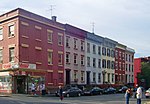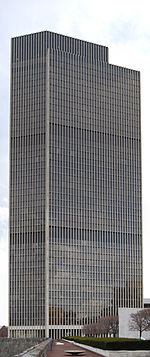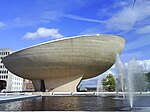Albany Free School
The Free School is the oldest independent, inner-city alternative school in the United States. Founded by Mary Leue in 1969 based on the English Summerhill School philosophy, the free school lets students learn at their own pace. It has no grades, tests, or firm schedule: students design their own daily plans for learning. The school is self-governed through a weekly, democratic all-school meeting run by students in Robert's Rules. Students and staff alike receive one equal vote apiece. Unlike Summerhill-style schools, the Free School is a day school that serves predominantly working-class children. Nearly 80 percent of the school is eligible for reduced-price meals in the public schools. About 60 students between the ages of three and fourteen attend, and are staffed by six full-time teachers and a number of volunteers. The school runs on a shoestring budget as a tradeoff for its financial independence and accessibility to low-income students. Tuition is billed on a sliding scale based on what parents can afford. Revenue from rental properties and fundraising supplements tuition income. The Free School started a high school program in 2006 that later spun off as the Harriet Tubman Democratic High School before closing in 2017. Journalists have likened the school's approach to unschooling and homeschooling, and its work to that of prefigurative politics. The Albany Free School is one of the few schools remaining from the 1960s and 1970s free school movement. It inspired the program of the Brooklyn Free School.
Excerpt from the Wikipedia article Albany Free School (License: CC BY-SA 3.0, Authors).Albany Free School
Elm Street, City of Albany
Geographical coordinates (GPS) Address Nearby Places Show on map
Geographical coordinates (GPS)
| Latitude | Longitude |
|---|---|
| N 42.645775 ° | E -73.757521 ° |
Address
Elm Street 8
12202 City of Albany
New York, United States
Open on Google Maps








